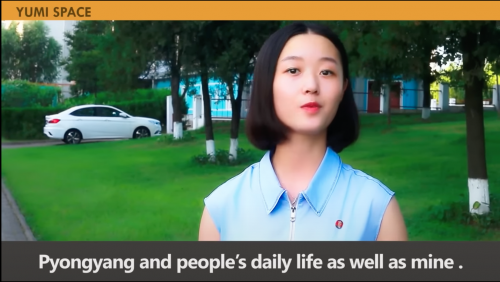
By Kaylee Blanco
NORTH KOREA— North Korean vloggers showcasing “life in North Korea” have been surfacing throughout social media and attracting millions of viewers worldwide. There has been an upsurge in Youtube and Tik Tok accounts in the past two years that depict an unrealistic account of day-to-day life, despite the government’s notorious bans on independent media. Experts at CNN explain that the lives shown are not a true reflection of the daily struggles of the millions of impoverished people living under the rule of dictator Kim Jong Un.
A TikTok account @NorthKoreanLife has uploaded 20 short videos with content ranging from streets with Audi, Mercedes, and Hyundai cars, crowds of people walking in train stations and neighborhoods with decent, upkept houses. The videos intentionally display people exercising rights that are restricted in North Korea with the attempt to squander many myths of the outside world.
Another North Korean account that has been in the spotlight is by a North Korean woman who goes by the name of YuMi. She amassed 750,000 views in her specially curated YouTube videos of her attending fitness centers, amusement parks and restaurants.
It is likely that YuMi and creators like her are not ordinary North Korean citizens, and are related to high-ranking officials who live a distinct and privileged life from the rest of North Korea’s population.
North Korea seeks to change the narrative about its repressive regime, but many viewers are not falling for it. One TikTok user was perplexed by a video of cable cars filled with passengers and claimed that “they are absolutely packed because no one is allowed to own a vehicle unless they are a high up [official].”
The Center for Strategic and International Studies highlights North Korea’s World Press Freedom Index, which ranks last out of 180 countries. North Korean propoganists’ claims of freedom could not be further from the truth. In reality, North Koreans seldom have access to the internet, which means that every social media post from North Korea must be reviewed by state media officials first.
Power outages and electricity scarcities are frequent occurrences. In fact, access to electricity is limited to only around 26% of the public.
North Korea’s government appears to be fabricating stories to mislead international viewers into believing that life is normal and even relatable. It is trying to divert attention away from its long history of human rights violations and aggressive behavior towards other countries.
According to the Human Rights Watch, in 2014, the United Nations Commission of Inquiry (COI) conducted a study on human rights in North Korea and found that the government had perpetrated crimes against humanity, such as murder, enslavement, torture and imprisonment.
In order to reshape the nation’s global image, North Korea resorted to initiating a new propaganda strategy that could reach millions of people at once. With hopes that the secretive, authoritarian and militarized country could be seen in a better light, these government-run social media accounts try to portray average life in North Korea as safe and normal.
While some viewers are not deceived by this illusion of North Korea, others believe it is valuable insight nonetheless. Not much is known about the country, as borders have been closed since the onset of the pandemic. People want a glimpse into the isolated country, even if it is propaganda.
The North Korean government also aims to attract potential tourists through these videos. Ha Seugn-hee, a research professor of North Korean studies at Dongguk University, says “The pandemic is going to end at some point, and North Korea has been concentrating on tourism for economic purposes.”
It is clear that the rise in North Korea vlog videos is a new propaganda strategy. With modernized content of life in North Korea, overseas viewers are led to believe that maybe it isn’t so bad. But it is important to remember that these videos are not representative of the oppressive conditions faced by the majority of the population, who are denied freedom of movement and expression.
